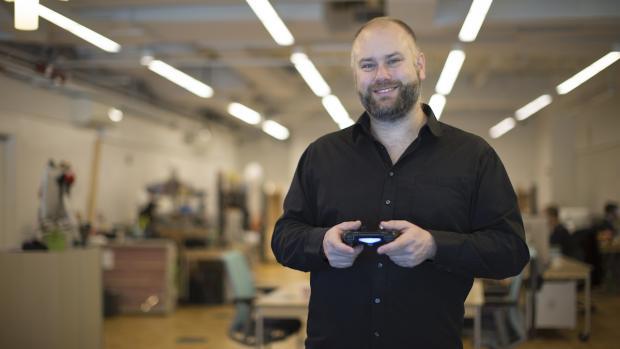Engineering society IEEE honors NYU Tandon Game Innovation Lab director for contributions to computational intelligence

Julian Togelius, associate professor of computer science and engineering and the director of the Game Innovation Lab
BROOKLYN, New York, Wednesday, January 8, 2020 – The Institute of Electrical and Electronics Engineers (IEEE) Computational Intelligence Society honored Julian Togelius, an associate professor of computer science and engineering and the director of the Game Innovation Lab at the NYU Tandon School of Engineering, with the 2020 Outstanding Early Career Award for his contributions to the field of computational intelligence and games.
The 7,000-member organization — IEEE's main society focusing on neural networks, evolutionary computation, fuzzy logic, and other biologically inspired or statistical approaches to artificial intelligence (AI) — gives just one Outstanding Early Career Award per year.
The prestigious citation, which recognizes an outstanding young scientist or engineer who contributed to the advancement of theory, technologies, and/or applications of computational intelligence, includes a $1,000 honorarium along with special acknowledgment and the opportunity to present research at one of this year’s IEEE CIS conferences.
Togelius — whose unconventional route to AI research included an undergraduate degree in philosophy from Lund University in Sweden — conducted graduate work in evolutionary and adaptive systems and earned a doctorate in computer science from the University of Essex. He now focuses on deep learning techniques for making computer games more engaging as well as on games for making AI smarter.
A frequently-cited researcher, Togelius did some of the world’s first work on automatic game design, including co-authoring research on modeling player behavior and experience. He is the co-author of the 2019 paper “Playing Atari with Six Neurons,” which demonstrated that even simple AI systems can learn and which won the International Conference on Autonomous Agents and Multiagent Systems (AAMAS) 2019 Best Paper Award.
“Essentially my work involves asking what AI can do for games, and what games can do for AI,” said Togelius. “I want to make computer games adapt to their players through finding out what players want (whether they know it or not) and creating new game levels, challenges, or rules that suit the players.”
He is currently working on enabling tools to help game designers be more creative and using games to diagnose the shortcomings of reinforcement learning.
Besides directing the Game Innovation Lab at NYU Tandon, Togelius is Editor-in-Chief of IEEE Transactions on Games; co-founder of the start-up modl.ai, which focuses on applying AI to the game industry; and chief science advisor of OriGen.ai, an energy-sector AI company and tenant of the Future Labs at NYU Tandon. He is also the author of “Playing Smart” a book on the future of games and game design enabled by AI.
“Julian’s work in applying AI to games and games to AI benefits both fields and demonstrates how our expertise in AI at NYU Tandon is growing,” said NYU Tandon Dean Jelena Kovačević. “His research has implications far beyond screens, consoles, and avatars. While games have been applied to computation since Alan Turing wrote algorithms for chess in the late 1940s, the strengthening nexus of games and AI has the potential to improve the systems society relies on, from the power grid to telecommunications networks to healthcare devices and beyond.”
About the New York University Tandon School of Engineering
The NYU Tandon School of Engineering dates to 1854, the founding date for both the New York University School of Civil Engineering and Architecture and the Brooklyn Collegiate and Polytechnic Institute (widely known as Brooklyn Poly). A January 2014 merger created a comprehensive school of education and research in engineering and applied sciences, rooted in a tradition of invention and entrepreneurship and dedicated to furthering technology in service to society. In addition to its main location in Brooklyn, NYU Tandon collaborates with other schools within NYU, one of the country’s foremost private research universities, and is closely connected to engineering programs at NYU Abu Dhabi and NYU Shanghai. It operates Future Labs focused on start-up businesses in downtown Manhattan and Brooklyn and an award-winning online graduate program. For more information, visit engineering.nyu.edu.




